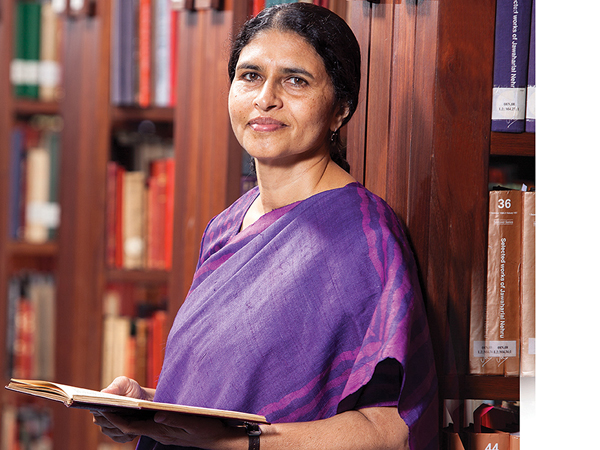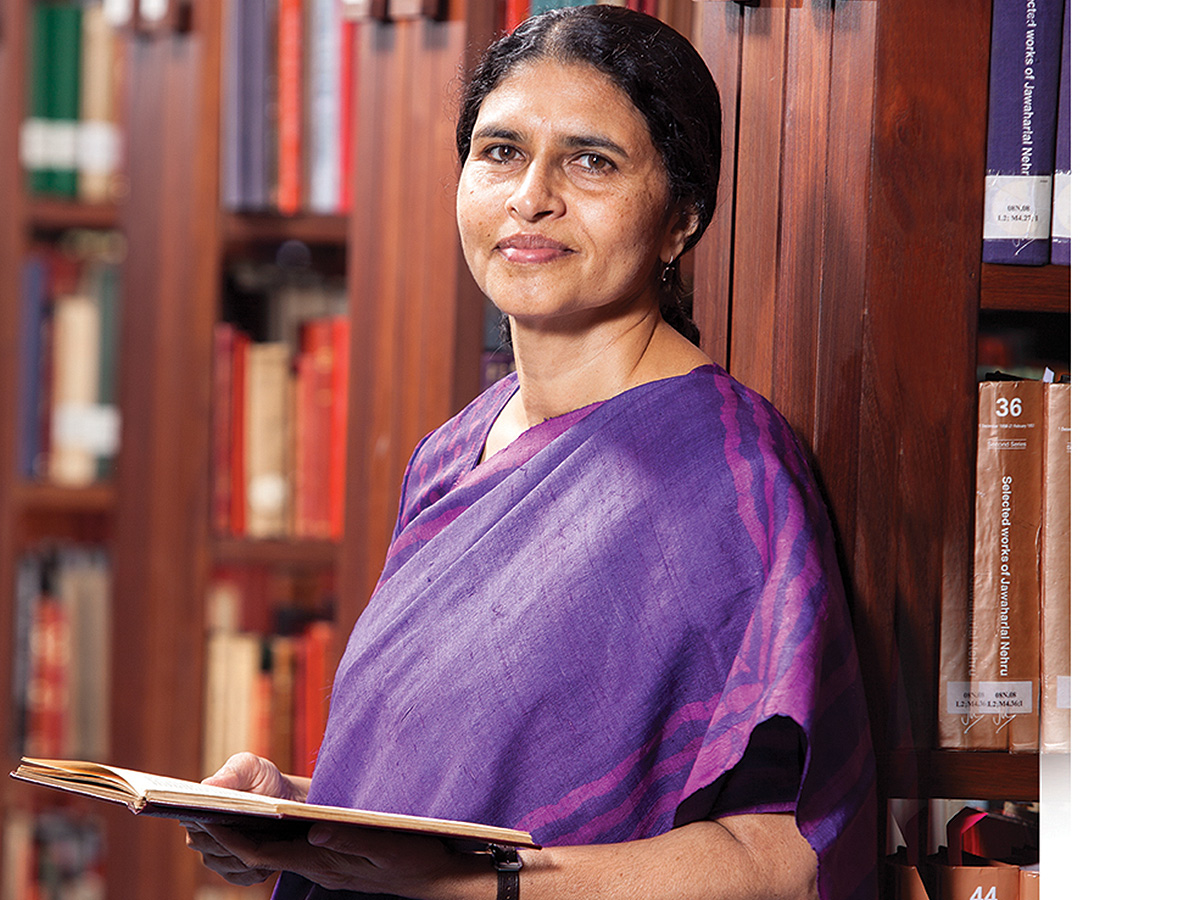The Infosys Prize 2013 in Social Sciences – Sociology and Anthropology is awarded to Aninhalli R. Vasavi for her distinctive and pioneering research that spans a remarkable range covering four main areas: Agrarian society at the intersection of economy, culture and environment; school education in varied regional contexts; globalization and its impact on the moral economy of urban occupations; and social science as seen from the vantage point of Indian languages and regional cultures.
Infographic:
Studying The Effects Of Globalization On Agrarian Societies
Scope and Impact of Work
Prof. Aninhalli R. Vasavi stands out as a rare scholar with a major impact on four different areas of social science research. Prof. Vasavi has made seminal contributions towards an environmentally-aware ethnographic perspective on agrarian economy and culture (Harbingers of Rain, 1999). Her book on farmers' suicides — Shadow Space : Suicides and the Predicament of Rural India, Three Essays Collective, 2012 — brilliantly demonstrates how the individualization and alienation produced by industrial farming methods generate unbearable social suffering that goes far beyond mere indebtedness or drought.
Prof. Vasavi's research on primary education offers an insightful analysis of the cultural embeddedness of the school, the teacher and the child as simultaneously social and administrative entities. Her concept of ’school differentiation’ appears in key reports written for international agencies and the governments of India, Karnataka and Rajasthan.
Prof. Vasavi is a pioneering contributor to the ethnography and political economy of the IT profession in India (In an Outpost of the Global Economy, Routledge, 2008, co-edited with Carol Upadhya). She is also the executive producer of a documentary trilogy on the IT industry in Bengaluru, Coding Culture (NIAS, 2006).
As a locally-rooted and globally reputed public intellectual, Prof. Vasavi has facilitated a productive engagement between Kannada writers and westernized social science in Kannada (edited volumes: The Inner Mirror: Kannada Writings on Society and Culture; Kannada version: Volagannadi, 2011). To expand their horizons and talent pools, the social sciences in India must breach the English barrier, and bilingual scholars like Prof. Vasavi will play a crucial role.
Bio
Prof. Aninhalli R. Vasavi did her M.A. and M.Phil. in Sociology from the University of Delhi, and her Ph.D. in Social Anthropology from the Michigan State University. She worked at the Indian Institute of Management, Ahmedabad, and the National Institute of Advanced Studies, Bengaluru, including a year as Dean of Social Sciences.
She is the founder and active member of Centre for Research and Education in Social Transformation, Kozhikode, an institute facilitating comprehensive learning for the Scheduled Caste and Scheduled Tribes.
Her work appears in academic journals such as Journal of the Royal Anthropological Institute, South African Review of Sociology and Contributions to Indian Sociology.
She has authored several books including, Harbingers of Rain, and has edited several books – In an Outpost of the Global Economy, with Carol Upadhya and Inner Mirror: Kannada Writings on Society and Culture. Prof. Vasavi left NIAS in 2011 to pursue her own research and to develop Punarchith, an organization for alternative learning that she helped set up in Chamarajanagar, Karnataka.
Timeline
Jury Citation
Prof. Aninhalli R. Vasavi's wide-ranging, distinctive and pioneering research spans four fields: Agrarian society as the intersection of economy, culture and environment; school education in varied regional contexts; moral economy of globalized, glamorized occupations like the IT industry; and interface between (western) social sciences and (vernacular) intellectuals in India.
Her two most important contributions enrich our understanding of farmer suicides and rural schooling. Prof. Vasavi's path-breaking work shows how it is not just the immediate economic reasons (like debt or crop failure, which are familiar features of Indian agriculture) but transformed social experiences associated with them — especially individualization of formerly collectively managed risks — that cause farmer suicides.
Her concept of ’school differentiation’ demonstrates how the presence of as many as 11 different types of schools shape choices of parents and teachers and determines the pedagogical experience of children.
Prof. Vasavi is notable for the spread of her research methodologies — from classical ethnography to documentary film-making — and her exemplary efforts to engage with work in Indian languages.

Prof. Aninhalli R. Vasavi reacts to winning the Infosys Prize
"As chair of the Social Sciences Infosys Prize jury this year, I’m absolutely delighted to be able to congratulate A. R. Vasavi. Her work is pioneering and spans a remarkable range in sociology and anthropology. But what makes it really stand out is that she takes this to the field, to the ground level and we can see this in her most recent work, which is hands-on work — Organization for Alternative Learning in Chamarajanagar district, Karnataka — bringing in the best of theory to the ground for education, for upliftment of the poor and the agrarian sector. And in the end, when our jury reached a conclusion after six months of work, finally when we reached a conclusion there was a very clear sense of unanimity that we had found a person who richly deserved to get the Infosys Prize for this year.”



